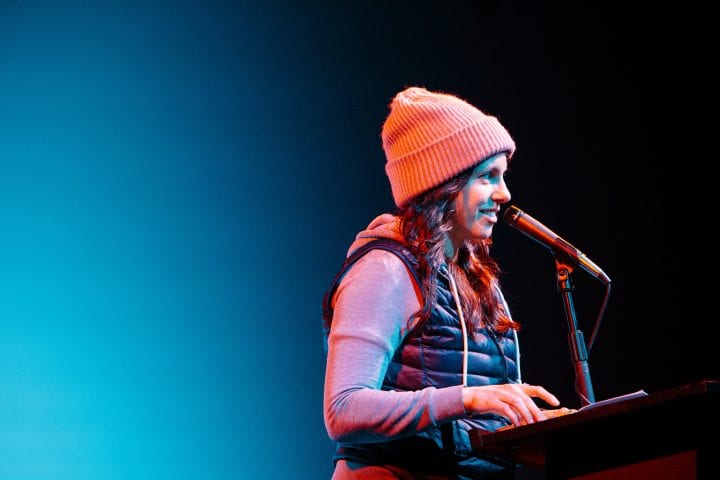
WITS Voices: Praising the Particular
March 11, 2020
By Lisa Wells, WITS Writer-in-Residence
I think of writing as a practice of awareness, a habit of heightened attention to detail—to light, gesture, sensation, intonation—and I try to approach the teaching of writing with the same quality of attention, awake to the shifting dynamics of the classroom. Good writing demands that we be awake in our lives, that we attune to one another and the world and, by my lights, this engagement is also literature’s principal gift; whether we’re conceptualizing and articulating our own experiences or engrossed in the observations of our favorite writers.
To introduce to this idea to students, I sometimes share a quote from Alain De Botton about literature’s power to shift perception: “Literature is a record of people with very sophisticated radars … that is its intelligence giving power. We are sensitized by the books we read.”
After discussing mentor texts and allowing those texts to influence and structure our own work, I ask students to return to the world and observe through the eyes of the author. How would Alice Walker describe that city bus? What would draw Justin Torres’s attention in that coffee shop? Some students reflect that the prompt only made them conscious of something they were already doing: experiencing the world through the filter of the book they’re reading.
I believe that the ability to carefully observe and articulate experience is not only personally empowering; the writer’s deliberate attention to detail is an act of radical preservation within social structures that tend to elide the small, irreducible, or inconvenient aspects of experience. Where the chorus pushes easy prescription, the writer quietly argues for the particular through vivid description. One exercise aimed at personalizing this idea asks students to produce, by memory, an exhaustive inventory of “home.”
The inventory is comprised of physical objects, but also of sound, smell, touch, a familiar phrase or gaze, the cant of light through a blind, a memorable gesture. Students then curate and organize these phenomena into a personal essay, story, or poem. I ask them to imagine that “in order for your home to exist, you must remember it into being.” The following week we share these “inventories.” Students are often surprised by both the variation among, and similarities between, what they hold most dear.
We further explore the tension between the particular and universal through the writing of persona poems or monologues, written in the voice of either an archetypal hero or villain. Our objective is to complicate two-dimensional characters, and in so doing, to make them more real. What is the saint’s fatal flaw? The superhero’s weakness? What is the secret kindness in the heart of the monster, the wound at the core of the villain? Sometimes I’ll offer a few sentence starters to help get their wheels turning:
I was misunderstood when… I became what I am on a particular day…
What no one knows about me… What they never understood …
My greatest fear is… All I really wanted was…
Complicating the superficial, particularizing the general, subverting cliché—these are important abilities for writers, but they’re also skills for life; a counter to those forces that would reduce our selves and relationships to fixed categories. My WITS students tend to be more aware of the damaging effects of labels than many of the adults I work with, but I don’t think they’re often given a platform to think-through and discuss what it means to be misunderstood, or to assert their right to be irreducible. And of course literature offers countless examples of people doing just that: refusing expectations, labels, and socially prescribed roles in pursuit of something truer.
The dramatic tension that is borne of the conflict between external-expectations and a nonconforming inner-life is not just the engine of art, but of adolescence in particular. That’s the most profound lesson I’m taking away from my residency: I’m not introducing my students to any of the great dramatic themes: they’re living them every day!

Lisa Wells is a poet and nonfiction writer from Portland, Oregon. Her debut collection of poetry, THE FIX(2018), was selected by Brenda Shaughnessy for the Iowa Poetry Prize and received a starred review in Publisher’s Weekly. A new book of nonfiction is forthcoming from Farrar, Straus & Giroux.
Lisa received her MFA from the Iowa Writers’ Workshop and has taught creative writing at the University of Iowa, the University of Arizona, at Seattle’s Hugo House, and at Yale-NUS in Singapore, where she was a writing fellow in residence.
Her other work has appeared in Harper’s Magazine, Granta, The Believer, The Iowa Review, Best New Poets, at The Poetry Foundation and many other places. She’s an editor of the poetry journal called The Volta, and at Letter Machine Editions, a small but mighty poetry press.